Podcast: Play in new window | Download | Embed
Subscribe: RSS
These are the videos of my presentation at the 2014 Podcamp Toronto.
This year I decided that it is best not to speak about podcasting but rather focus on issues familiar to readers of Singularity Weblog – artificial intelligence, transhumanism, and the technological singularity.
The session was intended to provide a brief introduction of the issues and to engage a broader audience of people who are generally not familiar with the topic.
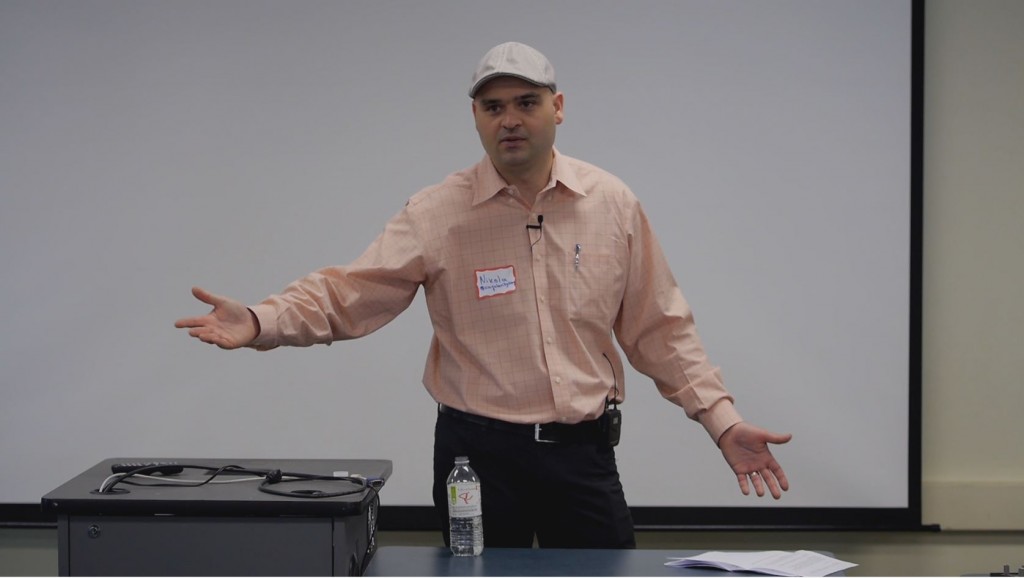
You can listen to and/or download the complete audio file above, or see my 33 min presentation, followed by a 50min Question and Answer session. (If you want to help me produce more high-quality episodes like this one please make a donation!)
As always, feel free to provide your comments and constructive criticism.
Thanks again to everyone who used social media to vote for, support and spread the word for it!
Peering into Our Future’s Black Hole: AI, Transhumanism and the End of Humanity:
Q&A Session:
Peering into Our Future’s Black Hole: AI, Transhumanism and the End of Humanity (full text)
One of my favorite proverbs is a Chinese one, and it goes like this: “Seek not to know the answers but to understand the questions!”
And so, when we are confronted with an issue, one of the best things that we can start with is ask ourselves: “What is the question I should be asking?!”
Because the type and quality of the question we begin with will ultimately determine the type and quality of the answer we are going to get.
And so today I will speak to you about the importance of asking questions.
There are many questions that I will bring to your attention today but perhaps the most important one that we will have to face both as a civilization and as individuals is one of the oldest questions that has been around for thousands of years and we have still failed to find an answer that satisfies the majority of us.
The question is this – “What is human?”
And so, this presentation will not be about podcasting.
Last year my presentation was about the 15 most fundamental tips that I could give you for starting and eventually becoming a successful podcaster. I shared how I passed over 500k views and got to live for 10 weeks in NASA’s Ames Campus in Mountain View, California.
How I got to meet many amazing people such as Ray Kurzweil, Peter Diamandis, astronaut Dan Barry, and visit cutting-edge companies such as Google, Facebook, and Tesla.
This year I could have told you how my Singularity 1 on 1 podcast passed 1 million downloads. But the principles that I used and continue to use to this day are the same. So going from half a million in 3 or 4 years and then doubling to over 1 million in 12 months required nothing more than some momentum, that I have gathered the years before, and the application of the very same fundamentals.
So, let me say this again, this presentation will not be about podcasting.
If you do want to find my tips and hear my personal podcasting story you can go to SingularityWeblog.com and search for Podcamp Toronto. Then you will find the video, the audio and the text of last year’s presentation.
As you can see – my friend Josh from JoshGloverPhotography.com is recording today’s session so you don’t need to take notes but just sit down, relax and enjoy. Give me a week or so and I will publish both the full text and the video on SingularityWeblog.com.
Finally, feel free to also come up with questions because I will leave time for a brief Q&A at the end.
You see, I believe that asking good questions is one of the most important and most fundamental skills that any intelligent being can acquire. And so, while I did say that this will not be about podcasting, let me give you a couple of tips on the questions you should be asking when reading session descriptions at Podcamp Toronto.
Q1: How qualified is the person holding the session?
You see, Podcamp Toronto is a fantastic open unconference. This is both a good and a bad thing. It is good because, given its low barrier to entry, anyone can take the stand and hold a session. So, I don’t care who you are, what you do, or what your topic is, you are given an amazing opportunity to contribute to the public discourse on a topic of your choice.
The bad thing is that again – given its low barrier to entry, anyone can hold a session. And thus in past years, the quality of those sessions has varied widely: from mind-blowing professional to dismal.
This year, we had a new social media voting system implemented. And while it was not perfect it was a great step forward. And so I expect that this will be the very best Podcamp Toronto as of yet.
Still, it helps to ask yourself: How qualified is the person holding the session?
So, my tip is this: if you have someone who will be talking about blogging – go and check out their blog. So, from the getgo, unless your name is Seth Godin, if you see a blog hosted on a wholesale domain platform such as Blogger, Typepad or WordPress.com, then that person likely has no clue about blogging. Other signs confirming that conclusion include, but are not limited to, low or no social sharing, low or no comments, lack of unique branding and design…
Q2: What is the metrics and how accurate is it in measuring their expertise?
If the person is talking about YouTube and/or video-production – go check out their channel and look at their videos. If you see only low-quality videos with no or low traffic, without any comments and so on, you may be better off going to another session.
If the person claims to be a social media guru go look at their social media count of their Podcamp Toronto session. If there is no or only one tweet – most likely their own, don’t bother wasting your time.
Last year someone was giving tips on blogging. And they said that they had 30k hits for the past 5 years.
My tip here is to be skeptical, ask questions and dig deeper!
So, let’s take this example. First of all, what is a hit? In most cases, a hit is either a page view or a visit. So, if I go load up my own blog on my own computer this will give me one hit. If I click the refresh button this will give me usually two hits. And so on. Thus, just one among several better ways to estimate traffic will be for example – unique visitors per month, rather than hits. This way, you get a more accurate estimate of the audience size and the blogger’s authority.
So, let’s do the math with the example I just gave: 30k divided by 5 years of blogging will give you roughly 17 hits per day. Since this is not unique visitors but hits, one can get 17 of those per day very easily just with the help of a couple of friends.
Therefore, I dare claim that you are wasting your time “learning” from such a popular blogger.
And so, to recap: today’s tip for podcasting as well as most other things in life is:
“Be skeptical, ask questions, measure and dig deeper!”
OK, let’s move to the main reason we are here today.
Peering into Our Future’s Black Hole: Artificial Intelligence, Transhumanism and the End of Humanity
In my session description I promised to share my answers to 5 questions:
1. What are the most important technological trends shaping our civilization?
2. What is the technological singularity?
3. What is transhumanism?
4. Can science really make us immortal?
5. Why humanity is doomed to go the way of the dinosaurs?
Let’s not waste any time but jump into tackling the questions in order:
1. What are the most important technological trends?
Since we can spend a whole day discussing those trends here but only have 45 minutes to so and I am planning to cover the other 4 questions too, I would focus on giving you what I believe is by far the most important one:
Exponential growth!
This is also the easiest and the hardest trend to grasp.
It is easy because unless you have been living in a cave somewhere for the past 50 years, you already know that the world is changing faster than ever before. Not only that but the change that we can clearly see is speeding up and accelerating in its own right. I believe that this is more or less obvious and easy to see for everyone here.
But exponential growth is very hard to grasp because our brains have evolved to make linear rather than exponential projections.
And so to help us grasp it better let me use an ancient Indian chess legend as an example.
The legend goes that the tradition of serving Paal Paysam – or what I understand is rice pudding, to visiting pilgrims started after a game of chess between the local king and the Lord Krishna himself.
The king was a big chess enthusiast and had the habit of challenging wise visitors to a game of chess. One day a traveling guru was challenged by the king. To motivate his opponent the king offered any reward that the sage could name. The sage modestly asked just for a few grains of rice in the following manner: the king was to put a single grain of rice on the first chess square and double it on every consequent one.
Having lost the game and being a man of his word the king ordered a bag of rice to be brought to the chess board. Then he started placing rice grains according to the arrangement: 1 grain on the first square, 2 on the second, 4 on the third, 8 on the fourth and so on:
Following the exponential growth of the rice payment, the king quickly realized that he was unable to fulfill his promise because on the twentieth square the king would have had to put 1,000,000 grains of rice. On the fortieth square, the king would have had to put 1,000,000,000 grains of rice. And, finally, on the sixty-fourth square, the king would have had to put more than 18,000,000,000,000,000,000 grains of rice which is equal to about 210 billion tons and is allegedly sufficient to cover the whole territory of India with a meter thick layer of rice. At ten grains of rice per square inch, the above amount requires rice fields covering twice the surface area of the Earth, oceans included.
It was at that point that Lord Krishna revealed his true identity to the king and told him that he doesn’t have to pay the debt immediately but can do so over time. That is why to this day visiting pilgrims are still feasting on Paal Paysam and the king’s debt to Lord Krishna is still being repaid.
Now, I hope you agree with me that this is an interesting and powerful story that helps us understand exponentials. But some of you may point out that it is a myth; a legend; it’s not real.
Well, let us look at the best-known example of exponential growth from the world of technology – Moore’s Law:
Moore’s law is named after Gordon Moore – co-founder of Intel Corporation.
It was published in 1965 and simply put it states that the number of transistors that can be placed on an integrated circuit for the same price will double every 18 to 24 months.
And we all know that already, right? We know that computers are obsolete the moment you buy them and that the next computer will be at least twice faster. But today everything is a computer. Your phone, your tablet, your camera, your car, even your toothbrush. And so we all have come to expect that the next generation of almost any product we buy is at least twice better than the previous generation.
And so, in a universe going digital where everything becomes information we are increasingly able to manipulate and mold that information. Thus, as far as the digital universe is concerned we are Gods. We can do whatever we want. But we have to remember that what used to be material is now digital. Take books and music records – they used to be material objects but now they have dematerialized and gone digital. The thing is that this is only the beginning. Everything is becoming information today.
Take biology, biology used to be analog but with the decoding of the human genome it is quickly going digital and now we can decipher and even 3D print biological tissues, even organs by design. And this is only the very beginning. We are well on the way of designing life on the computer screen and then pressing the print button to bring it to live.
And so, as Stuart Brand says we have become Gods and we might as well get used to it.
We, humans, are biological creatures. We are made of atoms. So more powerful computers allow us to learn and manipulate smaller and smaller particles in ever more precise ways. Thus there will be a day when we can create new bodies and even new brains. But I will talk more about that later.
Other major fields benefiting immensely from exponential growth include, but are not limited to, robotics and artificial intelligence; genetic engineering and synthetic biology; nanotechnology and 3D printing.
And so, all of the above has often been described by futurists such as Ray Kurzweil and Vernor Vinge who believe that exponential growth trends such as Moore’s Law will eventually lead to a Technological Singularity.
2. What is the technological singularity?
The term singularity has many meanings:
In simple language, it means the state of being singular, distinct, peculiar, uncommon or unusual.
In mathematics, it means a problem with an undefined answer – e.g. 5 divided by 0?
In physics a singularity is a black hole – a place where the fabric of time and space is ruptured and the laws of the universe don’t seem to hold true anymore.
And so we borrow this metaphor from physics to represent the accelerating changes that we can observe in technology.
And so, if I am to put the technological singularity in just two words I would say that it is “intelligence explosion”.
But there are numerous schools of thought on the definition, with subtle but important differences.
So, now that we heard the short version, let me throw a bunch of quotes at you to make things interesting:
“the ever accelerating progress of technology … gives the appearance of approaching some essential singularity in the history of the race beyond which human affairs, as we know them, could not continue.” John von Neumann
“Let an ultraintelligent machine be defined as a machine that can far surpass all the intellectual activities of any man however clever. Since the design of machines is one of these intellectual activities, an ultraintelligent machine could design even better machines; there would then unquestionably be an “intelligence explosion,” and the intelligence of man would be left far behind. Thus the first ultraintelligent machine is the last invention that man need ever make.”
I.J. Good
“Within thirty years, we will have the technological means to create superhuman intelligence. Shortly after, the human era will be ended. […] I think it’s fair to call this event a singularity. It is a point where our models must be discarded and a new reality rules. As we move closer and closer to this point, it will loom vaster and vaster over human affairs till the notion becomes a commonplace. Yet when it finally happens it may still be a great surprise and a greater unknown.” Vernor Vinge in a classic NASA paper from 1993
“… a future period during which the pace of technological change will be so rapid, its impact so deep, that human life will be irreversibly transformed. Although neither utopian nor dystopian, this epoch will transform the concepts that we rely on to give meaning to our lives, from our business models to the cycle of human life, including death itself.” Ray Kurzweil
Kevin Kelly, senior maverick and co-founder of Wired Magazine
“Singularity is the point at which all the change in the last million years will be superseded by the change in the next five minutes.”
Sean Arnott: “The technological singularity is when our creations surpass us in our understanding of them vs their understanding of us, rendering us obsolete in the process.”
So what happens to us when we stop being the smartest entities on the planet?
What happens when your toothbrush is smarter not only than you and me but smarter than all of us, all of humanity?
While we are pondering this issue let us move on to the next question I promised to address:
3. What is Transhumanism?
Transhumanism is both misunderstood and feared. Francis Fukuyama famously called it “the most dangerous idea.”
Put simply Transhumanism is the belief that technology can allow us to improve, enhance and overcome the limits of our biology.
More specifically, transhumanists such as Max More, Natasha Vita-More and Ray Kurzweil believe that by merging man and machine via biotechnology, molecular nanotechnologies, and artificial intelligence, one day science will yield humans that have increased cognitive abilities, are physically stronger, emotionally more stable and have indefinite life-spans.
This path, they say, will eventually lead to “posthuman” intelligent (augmented) beings far superior to man – a near embodiment of god.
Some of the main issues here are:
Can humanity continue to survive and prosper by embracing technology or will technology eventually bring forth the end of the human race altogether?
Will humanity get polarized into neo-Ludditetechnophobes and transhumanist technophiles?
Does that mean that wide spread global conflict may be impossible to avoid?
Who will be the dominant species?
What is the essence of being human?
4. Can science make us immortal?
Let me ask another question – What is death?
The definition of death may not be so simple and obvious as you may think. In fact, as our knowledge and technology improve, the definition of death shifts.
And so, in a way, death is just another way of somebody – usually a doctor – “I can’t do anything else for her!” But what we can or can’t do has changed over time. And thus the definition of death has changed too.
It used to be the case that death was declared when one stopped breathing on their own. But today we have respirators that can keep us alive even if we are unable to do that on our own.
It used to be the case that death was declared when one stopped having a pulse i.e. perceivable heart rate. But today we routinely stop heart beating during surgery.
And so one of the latest ways to measure and/or define death is measuring brain activity. As our knowledge and technology improve, in time this is also likely to change.
And so can science make us immortal?
Let me start addressing this issue by saying that science has made substantial progress with respect to ageing and life expectancy.
And so a brief historical survey of longevity throughout the ages will read like this:
Cro-Magnon Era: 18 years
Ancient Egypt: 25 years
Ancient Greece: 28 years
1400 Europe: 30 years
1800 Europe and USA: 37 years
1900 USA: 48 years
And so when around 1900 social security was introduced at 65 it was simply because most Americans never actually made it to 65. Thus it didn’t cost that much to introduce the program.
The problem is that today we are victims of our own success because almost everybody makes it over 65 today.
2002 United States: 78 years
A child born today is expected to live over 93 and right now every 1 year our life expectancy improves by 3 months.
There will be a point when every year our life expectancy will improve by another year: this is what Dr. Aubrey de Grey calls Longevity Escape Velocity.
In simple words that means that we will be able to prolong life indefinitely.
5. Why humanity is doomed to go the way of the dinosaurs?
We are often told that humanity is the pinnacle of evolution. But it is not hard to see that we are a beta product. We have numerous problems and we are far from perfect. In fact, what has allowed us to survive and prosper is our intelligence which has given birth to our technology. Strip away all of our technology and the vast majority of us will not survive.
Moreover, evolution never stops. So, there was a time when dinosaurs ruled the Earth. But as it is always bound to happen – things change. And what was previously a niche organism – namely mammals, took over and flourished, while dinosaurs when extinct.
Well, evolution is also accelerating. It took perhaps 10 billion years to form the galaxies and our planet. It took another couple billion years before we had the first simple single cellular life. Then it took hundreds of millions of years to get plants and eventually dinosaurs. Hominoids have been around for perhaps something like 6 millions years and then homo sapiens has been around between 50 and perhaps 200 thousand years.
And so everything is accelerating. But also everything is changing. And today the fastest pace of evolution is the one we can observe in technology. Thus technology is supplanting biological evolution and technological creatures are likely to replace biological ones just like mammals replaced the dinosaurs.
In fact, this has already happened because our civilization is a technological one and it cannot survive without its technology.
And so I hope that by now you would agree that in the long run it is inevitable that humanity as we know it, is doomed to go the way of the dinosaur. As we saw, evolution doesn’t stop and, despite of what we are being told, we are not unique in any way. And just like all species before us Homo Sapiens will eventually go extinct.
However, this does not have to be necessarily bad news. For as long as humanity evolves and there is continuity between what we are today and what we have to become to survive and prosper, there is hope. In fact, this as Ray Kurzweil claims is the very essence of what makes us human – our ability to evolve and transcend.
And so this is the choice: evolve and transcend our biological limitations or go extinct.
This choice is in turn, derived from one of the most fundamental questions we still have to confront – both collectively as a civilization, and personally – as individuals.
“What is human?”
This session was not meant to provide definitive answers, but rather, to set the stage and ask some questions in an attempt to generate discussion, to provoke thought and to stir the imagination. My goal is to spark a conversation about the impact of technology, exponential growth and artificial intelligence.
My name is Nikola, my blog is SingularityWeblog.com and my blogging alias is Socrates.
Today I have tried to share with you my journey to discover who I am as a being, who we are as a species and most of all how does technology change the meaning of both the above questions and answers.
And now I would like to invite you to join me in this journey and start asking your own questions:
So let us open the Q&A session and thank you very much for your time!
Related articles


 A few weeks ago I got interviewed on the
A few weeks ago I got interviewed on the 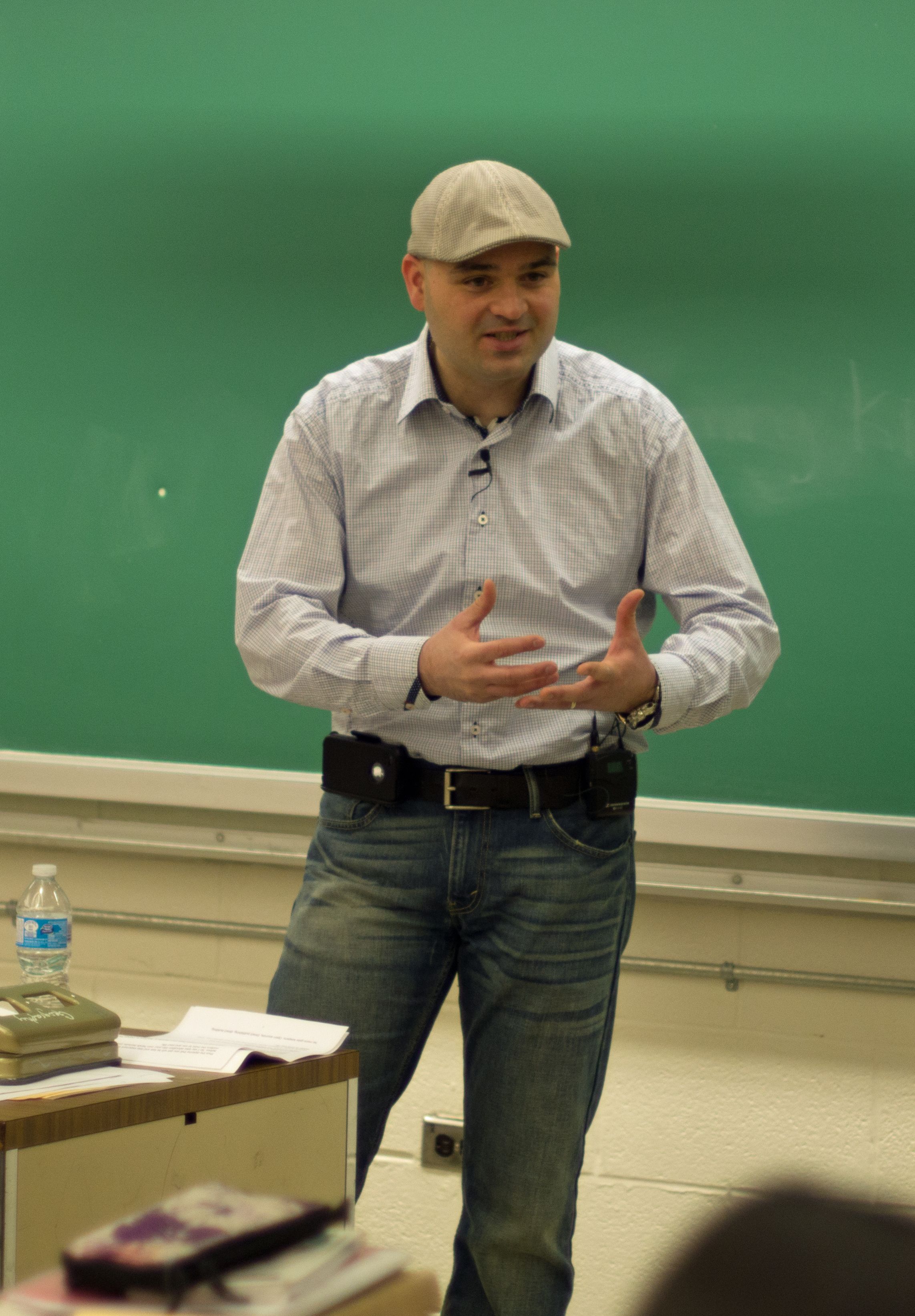
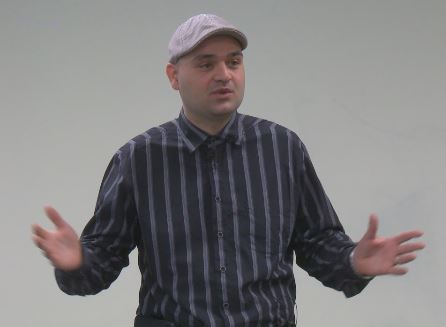

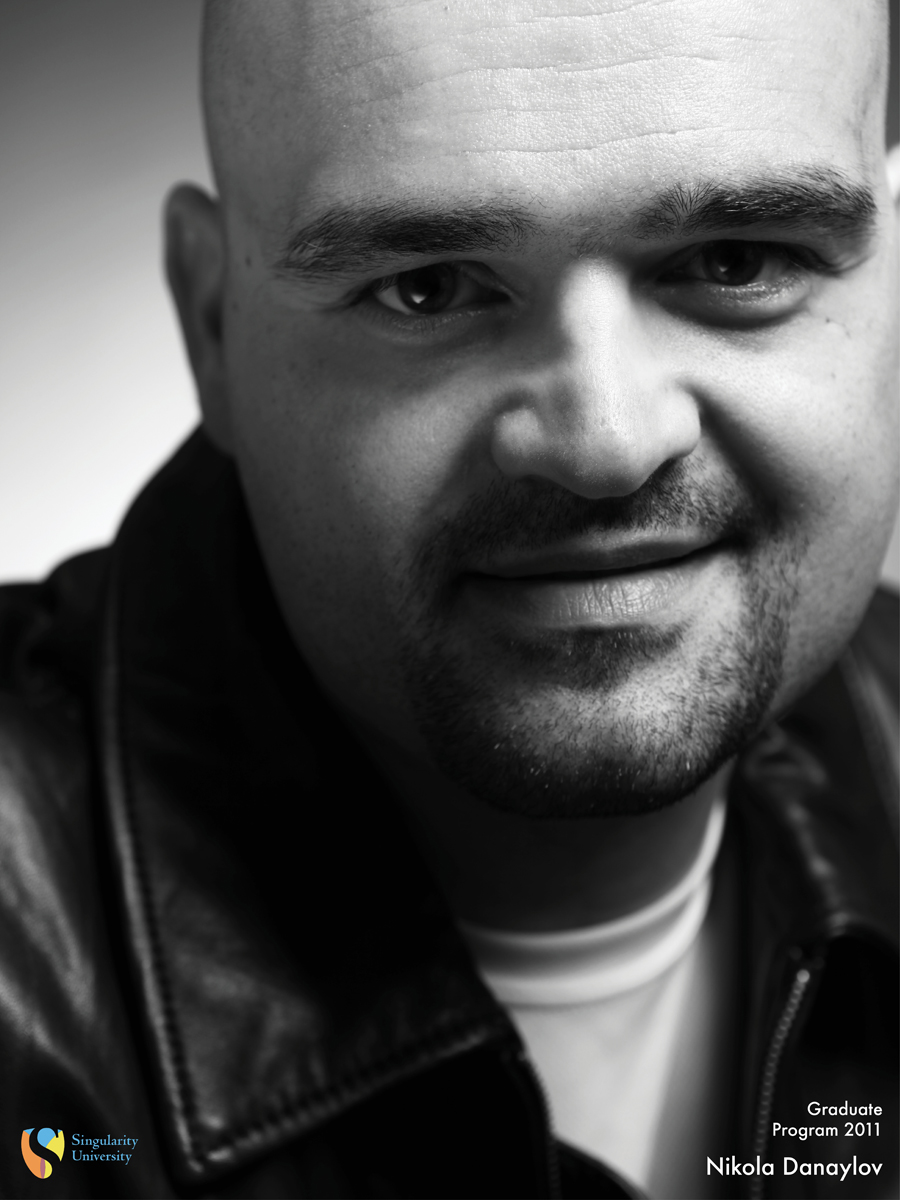 I know how hard it is start a podcast. So when budding podcasters ask me for an interview, I am always looking for reasons to say “Yes.”
I know how hard it is start a podcast. So when budding podcasters ask me for an interview, I am always looking for reasons to say “Yes.”
 Lincoln Cannon
Lincoln Cannon Lincoln Cannon is a philosopher and programmer, promoting change toward radical flourishing in creativity and compassion through technology and religion. He has over fifteen years of professional experience as a software engineer, Internet marketer, information technologist, and leader of technical teams in the development and integration of web, mobile and management information systems. Lincoln holds degrees in business administration and philosophy. He is married to Dorothée Vankrieckenge, a French national, and is father to three bilingual children. In his spare time, Lincoln serves as president of the Mormon Transhumanist Association.
Lincoln Cannon is a philosopher and programmer, promoting change toward radical flourishing in creativity and compassion through technology and religion. He has over fifteen years of professional experience as a software engineer, Internet marketer, information technologist, and leader of technical teams in the development and integration of web, mobile and management information systems. Lincoln holds degrees in business administration and philosophy. He is married to Dorothée Vankrieckenge, a French national, and is father to three bilingual children. In his spare time, Lincoln serves as president of the Mormon Transhumanist Association.
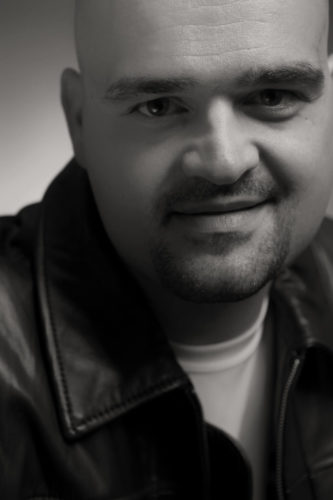 Last Night I did a one hour interview for FastForward Radio by
Last Night I did a one hour interview for FastForward Radio by 
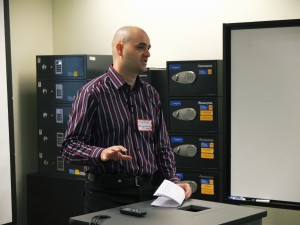 Last Sunday I spoke at
Last Sunday I spoke at 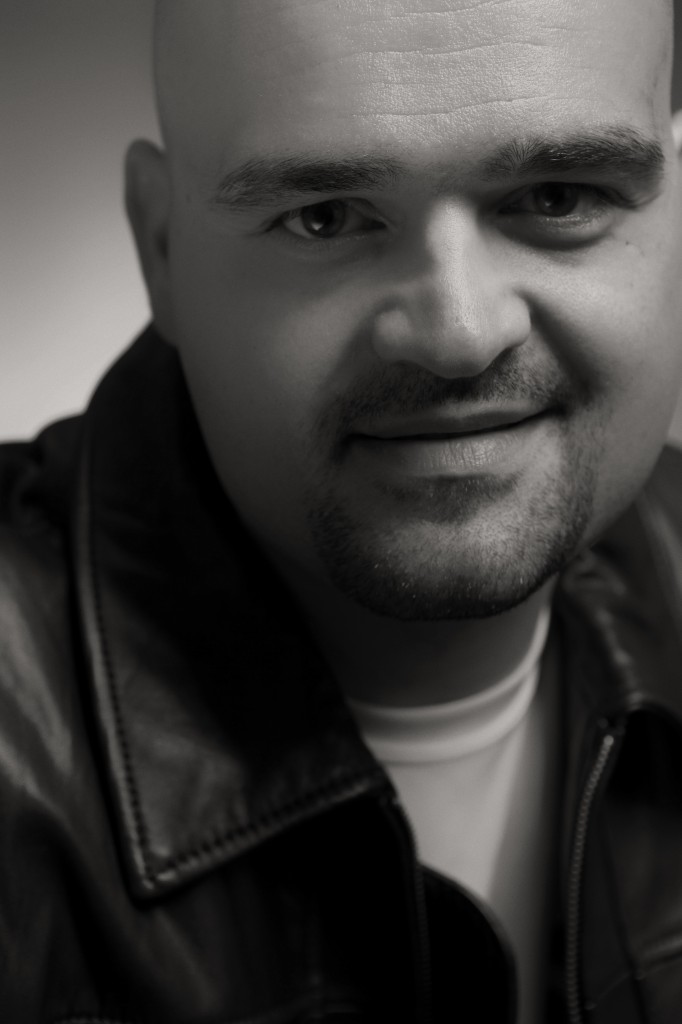 It is only fair that every once-in-a-while
It is only fair that every once-in-a-while 
 I am just about ready to submit my application to
I am just about ready to submit my application to 